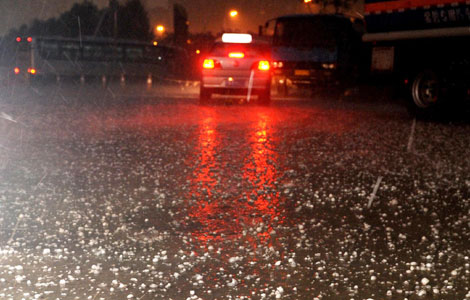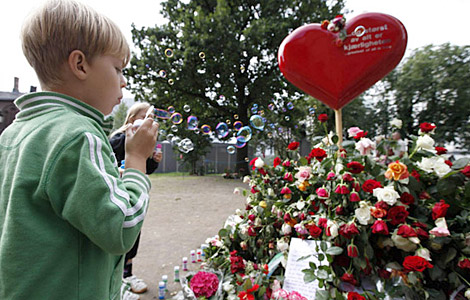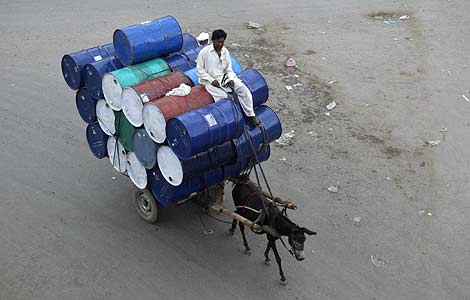Cities urged to boost vital disaster preparation plans'
Updated: 2011-08-22 08:20
By He Dan (China Daily)
|
|||||||||||
BEIJING - China's cities should be given help to improve disaster preparation and response systems, as populous areas are becoming increasingly vulnerable to catastrophes, experts said at the Beijing-Tokyo Forum on Sunday.
Thanks to rapid urbanization, which has transformed small towns into crowded metropolises, disasters have the potential to cause more damage than ever before, said Wang Changyuan, deputy secretary-general of the China Association of Mayors.
Urban planners in Chinese cities - home to more than 660 million people, about half of the population - must be cautious of disasters, natural and man-made, he said.
He also urged city mayors from China and Japan to strengthen ties and regularly share experience in disaster preparation and response, as the two countries both have large populations and are prone to natural disasters, including earthquakes.
Wang's remarks came during a panel discussion on strengthening local governments' communication, as well as Japan's recovery after its recent disasters.
On March 11, a 9.0-magnitude earthquake and a tsunami devastated Japan, triggering a series of core meltdowns and an explosion at Fukushima Daiichi nuclear plant.
The losses caused by the nuclear leak in Japan could have been reduced if the Japanese government had promptly released information to the public, said Hirohiko Izumida, governor of the western Niigata prefecture, which lies on the opposite coast to Fukushima.
Due to insufficient information after the accident, the country's beef industry has been hit hard, he said, adding that nearby residents did not have enough time to evacuate.
China and Japan should ensure the public, both at home and in neighboring countries, are informed when major disasters occur to facilitate relief work and reduce possible damage, Izumida said.
"China can learn a lot from Japan's experience in coping with earthquakes, especially the national mechanism for earthquake drills in workplaces and schools, which teach people how to react when tremors happen," said Gao Jianguo, an expert from the China Earthquake Administration.
Although Chinese kindergartens and schools have been required to hold regular drills every semester since 2006, only about 70 out of 620,000 schools held such drills in 2007, Gao said, without citing the source of the statistics.
Yet, in the 18 days that followed the devastating earthquake in Sichuan province in May 2008, drills were carried out at almost 18,000 schools, he said.
Gao warned, however, there are still many schools failing in their duty to prepare students and teachers for potential disasters.
Meanwhile, Emiko Okuyama, mayor of Sendai city, praised China's aid efforts for victims of the earthquake and tsunami in March.
"We received blankets, bottled water and other materials from Changchun (in Jilin province), which was a friendship city of Sendai," she said, adding that the tsunami destroyed many Sendai communities, as well as trains and cars, and flooded large areas of rice fields.
Supported by national and international rescue forces, Sendai has completed its reconstruction work, although much work is still to be done in helping the city to rebound from the drop in tourism, Okuyama said.
Hot Topics
Anti-Gay, Giant Panda, Subway, High Speed Train, Coal Mine, High Temperature, Rainstorm, Sino-US, Oil Spill, Zhu Min
Editor's Picks

|

|

|

|

|

|







